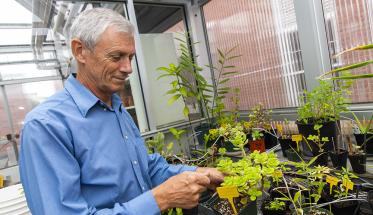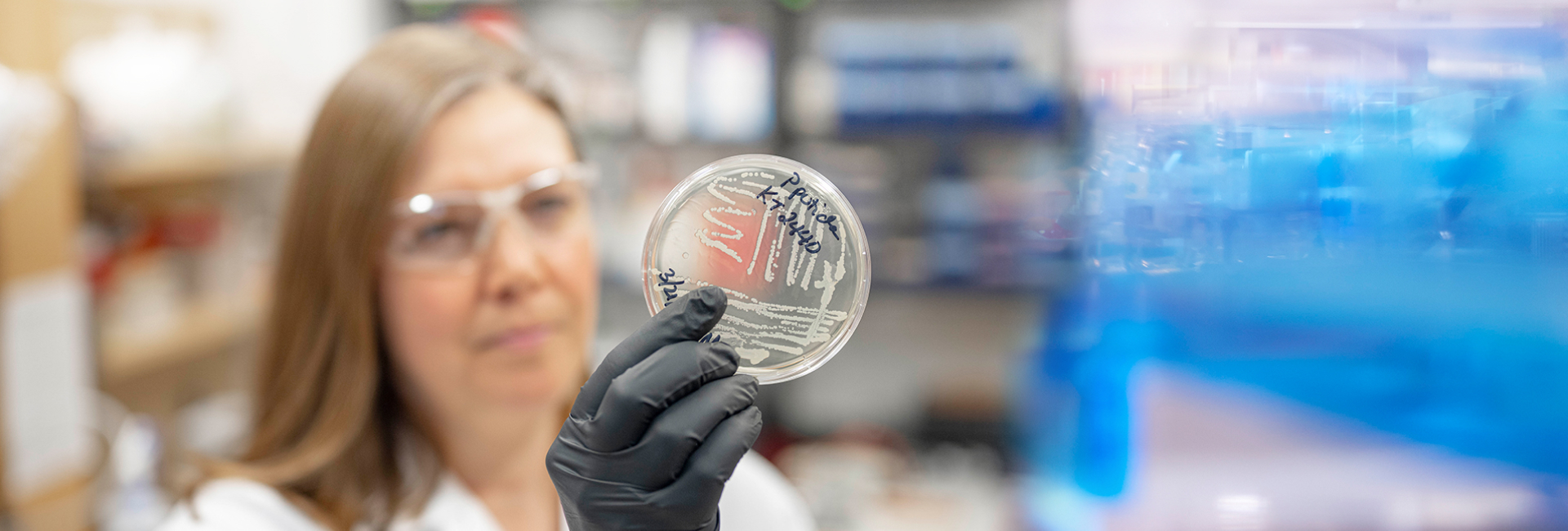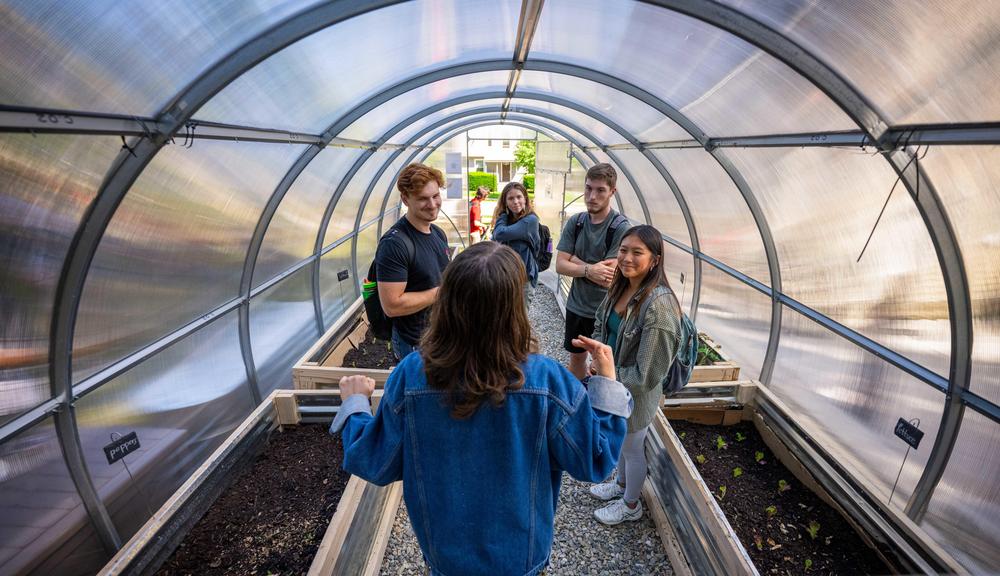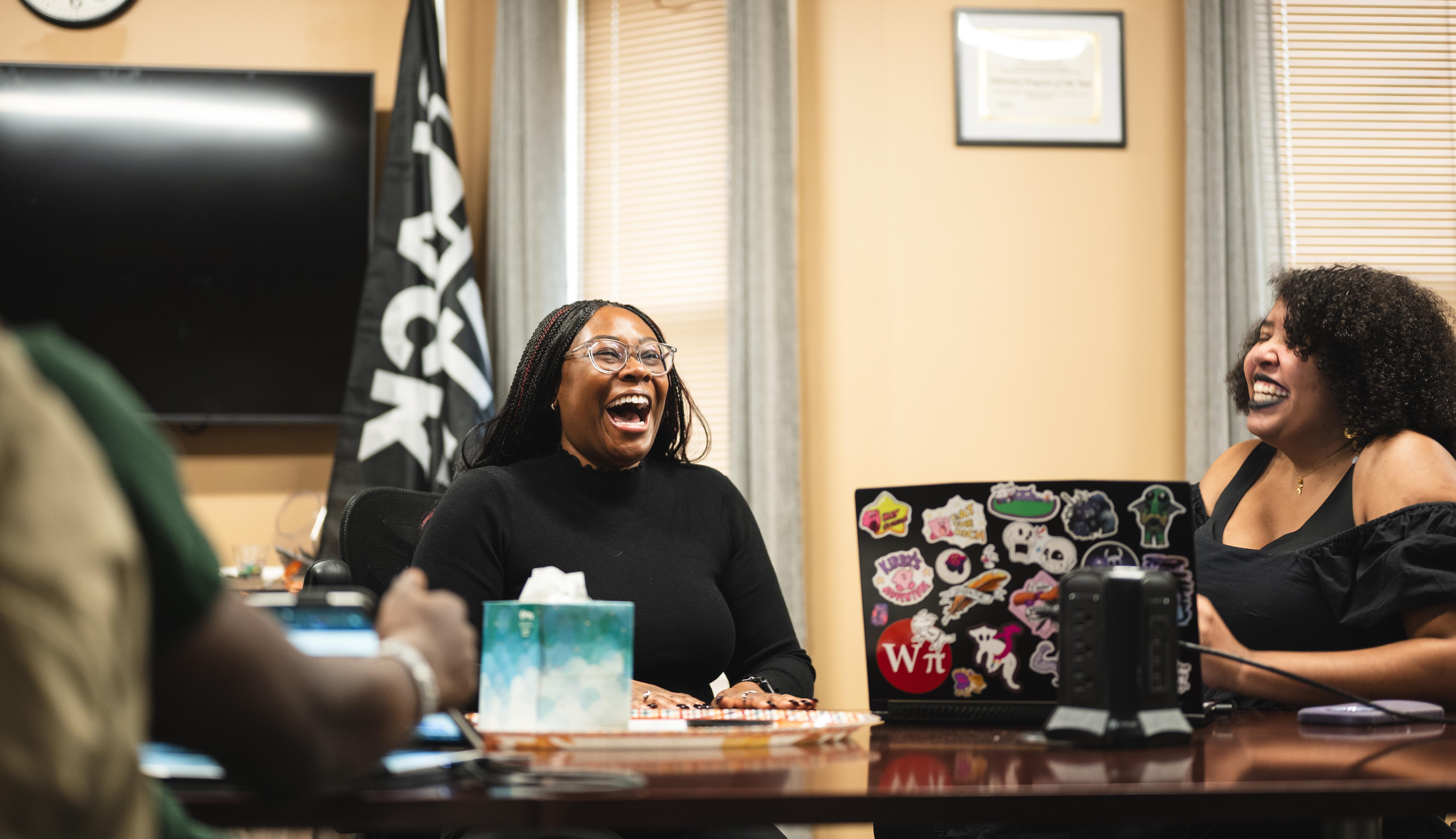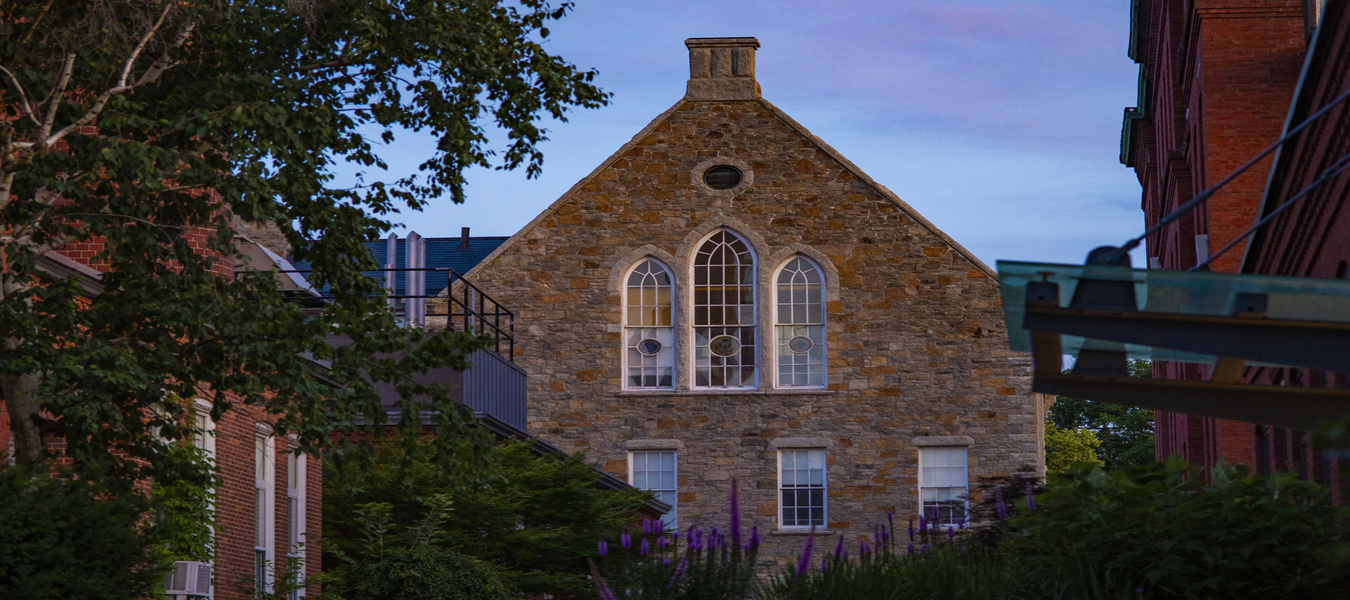When Mike Bocka arrived on campus in 2015, the Department of Biology and Biotechnology (BBT) faculty were the heaviest users of the greenhouse located on top of Salisbury Labs. He now fills a dual role as a lab manager and the greenhouse manager.
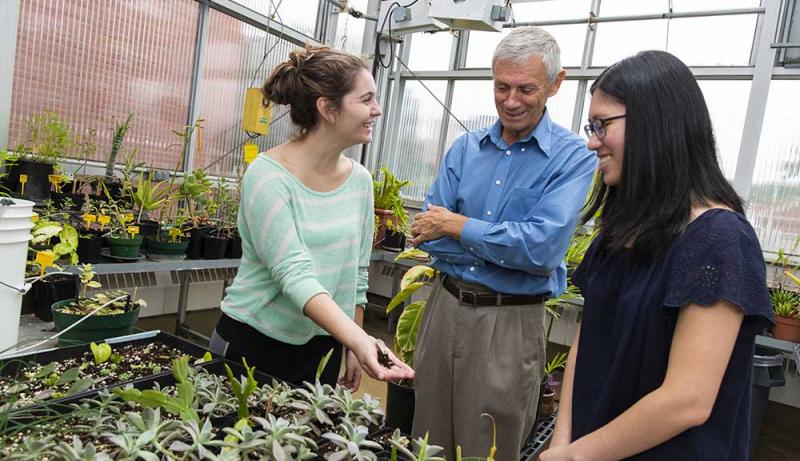
Justine Davids (left) and Mike Bocka are regulars in the campus greenhouse atop Salisbury Labs.
Built in 1997 with a grant from the National Science Foundation, the greenhouse is technically a moveable structure. Because Salisbury Labs is a historic building, WPI was unable to add the greenhouse permanently. The BBT department uses the space for research and to support teaching, but it has an almost cult-like following with the new Greenhouse Club attracting close to three dozen members. Greenhouse maintenance is done by work-study students happy to land this coveted role.
Justine Davids ’21, head of the club, says the greenhouse provides a place of calm on an urban campus. “I definitely like the peace and quiet,” she says. “We don’t have the opportunities to be outside and be in touch with nature.”
The greenhouse is not just about the plants, says Bocka, it’s about caring for plants in the larger context of taking care of the environment.
Who uses the greenhouse in an average week?
There are faculty members coming from BBT, and students who are in the Greenhouse Club. We have work-study students who work here, too, doing routine plant care and maintenance. In the spring we work with the Regional Environmental Council’s YouthGrow Program [an urban agriculture-focused youth development and employment program for low-income teens] to start seedlings for community gardens. Several weeks of every term, the department hosts a program called Plant Parenthood, spearheaded by Barbara Milanese, an administrative assistant in BBT. Students start a new plant and take a plant home with them.
What do you like about managing this space?
I want the students to come and enjoy this place. When students come to a Plant Parenthood session, they start a new plant and take a plant with them. But I don’t want them to think it ends there. You plant for five minutes and you take a plant away, but then you need to care for it. Plants have been shown to improve air quality and to positively affect people’s mood and sense of well-being.
What do people not realize about the greenhouse?
Many people don’t know it’s here. I wish everyone knew this was here. If someone loves to care for plants, they can join the club. The students are doing a very good job spreading the word about what we do here. They learn to identify the plants because sometimes we do not know what we have here. For me, besides the researching part and the classes, I want students to come here and enjoy the plants. I just want students to benefit from this.
In this world, anything that lives and is green is good for the planet.
"This is such a relaxing space. Plants don’t ask questions, but you can tell they are telling you a story." -Mike Bocka
Not counting the obvious research benefits, what makes the greenhouse so interesting?
We have all kinds of plants. There are scented geraniums, succulents, two pitcher plants that are carnivores. They eat meat—they trap flies and digest them for use as nutrients for the plant. For smell, I like the Vicks plant (Plectranthus tomentosa). We have a white pineapple plant from Hawaii—it takes three or four years to get an actual pineapple. I inherited most of these plants when I came three years ago [Bocka is originally from Albania]. I want to keep every plant I found here. If I can find new plants, we get new plants.
What makes you proud of the space?
This is such a relaxing space. Plants don’t ask questions, but you can tell they are telling you a story. You know when they are suffering or when they are happy. In the winter you can come here and it is so green. I wish I could spend more time here.
The student volunteers started when a computer science student came to me and said he wanted to volunteer. I saw he had good knowledge and thought the students could listen to this guy. He wanted to expand it and bring in a friend. He looked at starting a club. We had plants they were propagating and multiplying and they said, “How about if we sell some of those plants?” That’s the start of the plant sales.
Are you a gardener in your free time?
Yes, I have my own vegetable garden at home, and we keep as many plants inside as we can. But my wife also takes care of them. We grow tomatoes, cucumbers, peppers, chili peppers. I have raspberries and strawberries. You have to protect them from the birds and the squirrels and the chipmunks. You have to leave the fruit to ripen on the plant, and the animals won’t let you. You might have to pick it before it’s ripe. They might even start to eat it when it’s green! My son will say, “Why don’t we give them something else they love to eat instead?” But if you give them something they like, all the neighbors will come.
What do you like about WPI?
I like the everyday contact with people here—students, faculty, staff. Everyone is so nice and understanding. Every day I have the privilege to learn something new and beneficial for real life. The environment is very nice inside and out, everyone tries to do their job to make WPI a better place for all. Many times my wife and I come here evenings or weekends for different activities, discussions, shows, concerts, and movies. We enjoy it very much.
- By Julia Quinn-Szcesuil
